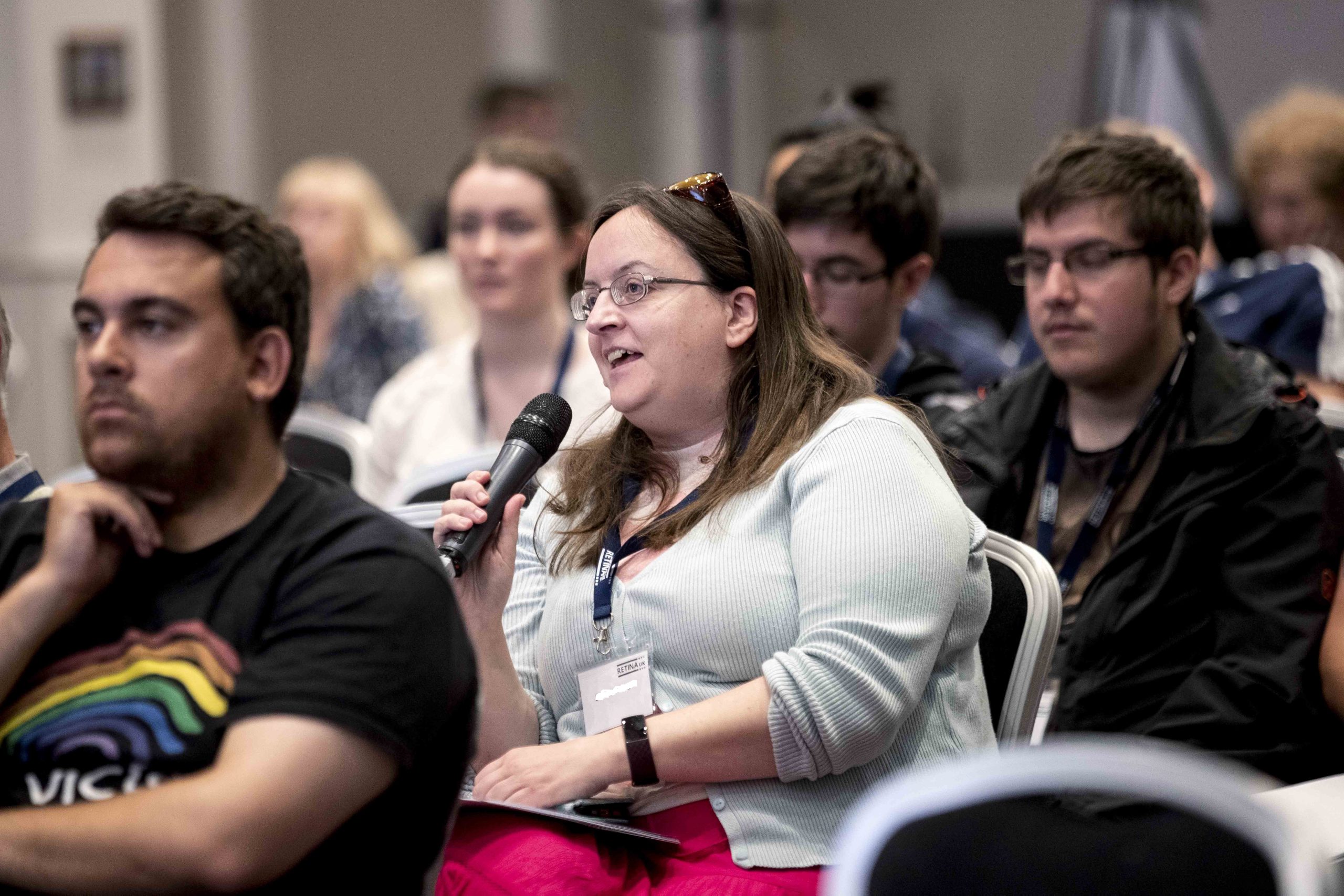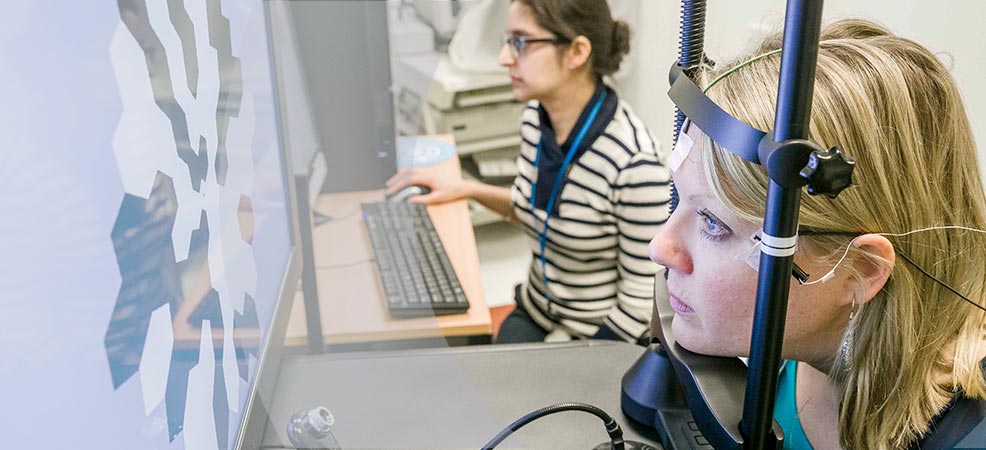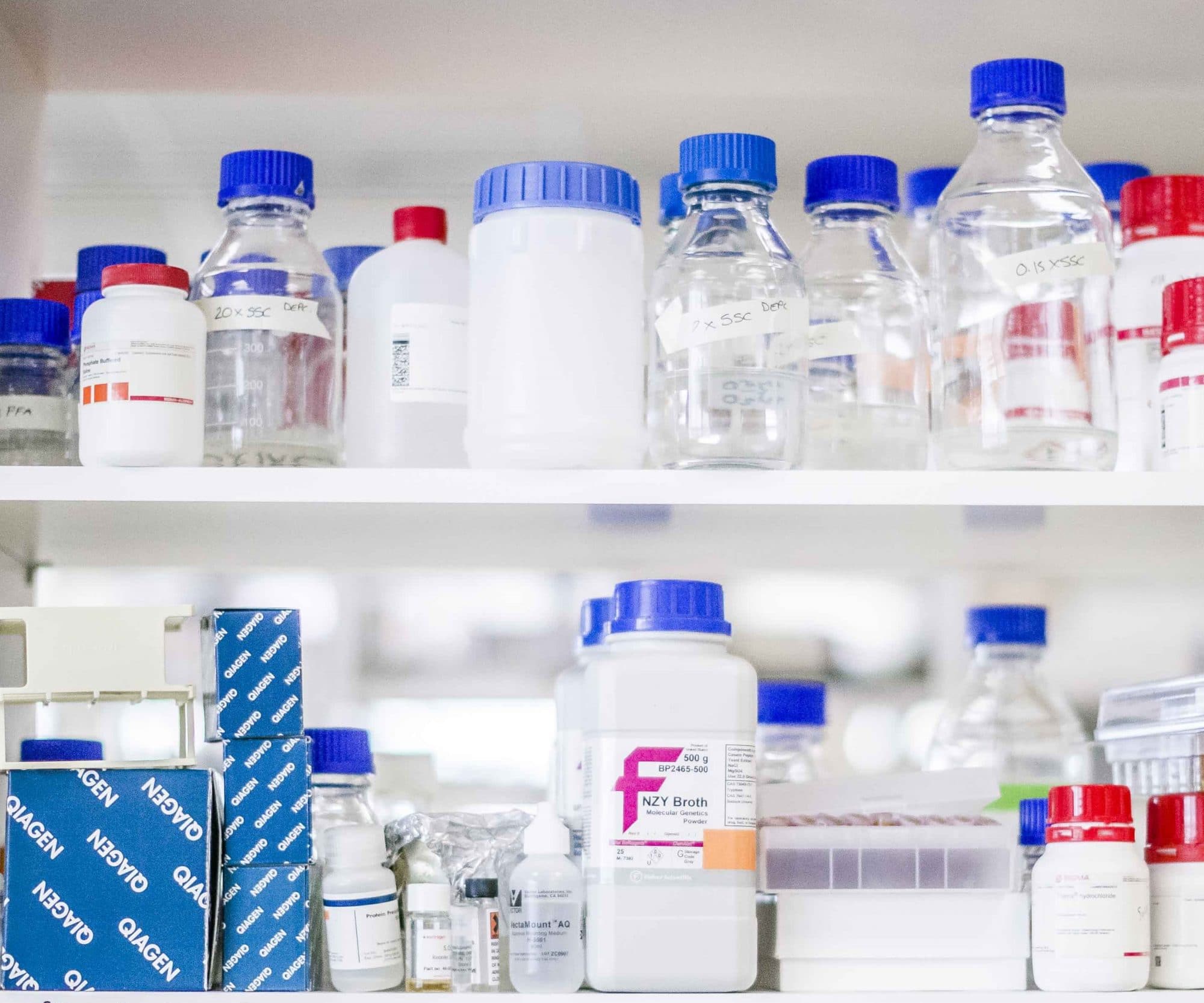These cells line the back of the eye in the region known as the retina.
People with RP experience a gradual decline in their vision because the two types of photoreceptor cells – rod and cone cells – die. Rod cells are present throughout the retina, except for the very centre, and they help with low light and peripheral vision. Cone cells are also present throughout the retina, but are concentrated in the central region of the retina (the macula). They are useful for seeing detail and for colour vision. In RP, the rod cells, and then eventually the cone cells, stop working, causing vision loss; however, many people with RP retain useful central vision well into middle age.
Conditions in which the rod photoreceptors deteriorate ahead of the cones are sometimes grouped under the umbrella term “rod-cone dystrophies”. RP is the most common of these.
Symptoms
Rod cells are usually initially involved, and difficulty seeing in dim light, including transitioning from light to dark and vice versa, is one of the earliest symptoms.
Peripheral vision will also decline, resulting in a narrowing of the visual field. Central vision is often maintained until much later.
RP is typically diagnosed in young adulthood, but the age of onset may range from childhood to late adulthood.
The condition is slowly degenerative, but the rate of progression and degree of visual loss varies from person to person and even among affected members of the same family. It is therefore very difficult to predict what an individual’s vision will be like at a specific time in the future. Both eyes are usually affected in a similar way.
Cause
RP is one of the most complicated genetic conditions, and over 80 causative genes have been identified to date (September 2019); faults in any one of these can cause the disease. RP follows various inheritance patterns, including autosomal dominant, autosomal recessive and X-linked.
It is not unusual for cases to occur where there is no family history of the disease. Find out more at RetinaUK.org.uk/genetics/inheritance-patterns.
Treatment
For the vast majority of those affected, there are no treatments that can effectively slow or stop the progression of RP (September 2024), although research in this area has accelerated and potential therapies are at the clinical trial stage.
For a very small proportion of those with RP, a gene therapy called Luxturna, which is available on the NHS, may be appropriate. This therapy is only suitable for those whose RP is caused by mutations in the RPE65 gene, and it is most effective when given early.
Many of the novel treatments being tested are gene therapies or other molecular approaches that are specific to a particular genetic fault. It is extremely important that those affected by RP are offered genetic testing to allow them to access future treatments and clinical trials.
Despite the lack of current treatments for RP, it is still very important to continue to have regular eye check-ups. In particular, people with RP tend to develop cataracts at an earlier age than the non-RP population and can benefit from cataract surgery, although the visual outcome obviously depends on the severity of the retinal degeneration.
Clinical trials
Visit RetinaUK.org.uk/medical-research/joining-the-research-effort for clinical trials information. If you are considering joining a trial always discuss it with your usual ophthalmologist or family doctor first. Participation in a genuine clinical trial will never require payment.
You can also read about possible treatment approaches for retinal disease at RetinaUK.org.uk/medical-research/approaches-to-treatment and the latest news about research at RetinaUK.org.uk/research-news.
Many treatment approaches are specific to a particular gene fault, so it is important that those affected by the disease are referred for genetic testing so that they can access new treatments and clinical trial opportunities.
For support
The Retina UK Helpline provides information, support and signposting for people affected by inherited sight loss as well as healthcare and education professionals.
Contact 0300 111 4000 (9.00am – 5.00pm Monday to Friday and Tuesday and Thursday evenings 5.00pm – 8.00pm) or email [email protected].
Condition-specific information
Gene Vision gene.vision/knowledge-base/retinitis-pigmentosa-for-patients. Retina UK joint funded Gene Vision and input into accessibility and content.
Getting involved in research
Those who join the Retina UK Lived Experience Panel receive an email from us when we are made aware of participation opportunities such as focus groups, surveys and research projects. Sign up at RetinaUK.org.uk/get-involved/lived-experience.









